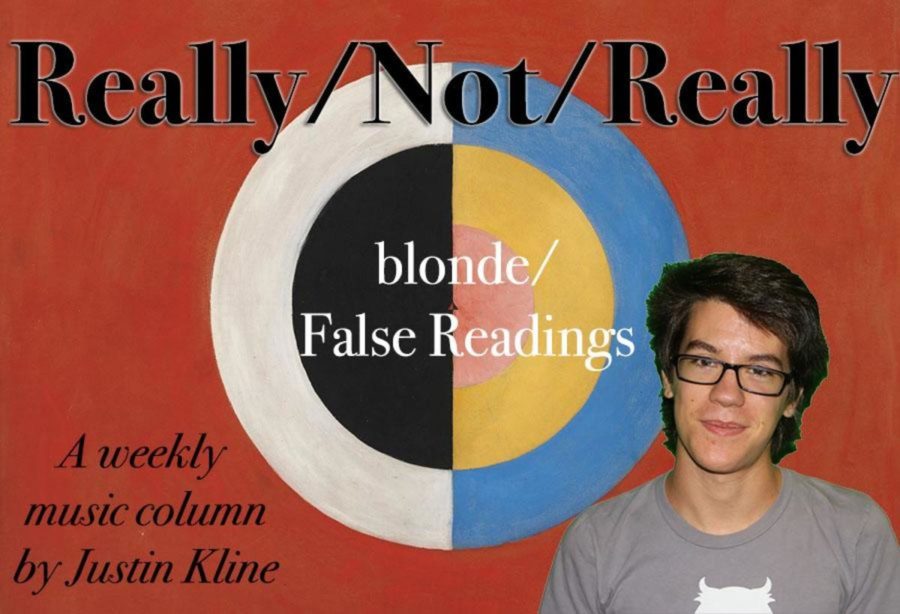Really/Not/Really: Frank Ocean’s Blond and Eluvium’s False Readings
For this first issue of Really/Not/Really, senior Justin Kline reviews two contrasting albums.
October 11, 2016
Regardless of where one’s preferences in the history of pop music might lie, I count myself grateful that Frank Ocean and Eluvium released projects within a month of each other. Choosing to cover both of them is a strange dichotomy to say the least. Where one peaked on album charts at number one in nine countries, including the US and UK; the other, it’s a safe bet to make, you’ve never heard of.
The purpose of this contrast is to hopefully expand one’s horizons – familiar artists will be addressed alongside relatively obscure ones, and if you are willing to engage with the less popular, you might be pleasantly surprised. For these two albums, there is much to discuss that I did not get to write about for a lack space, and I hope to hear a continued conversation and different perspectives on these records from Lamplighter readers.
